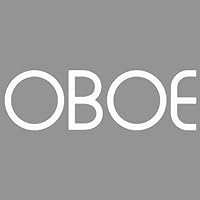Mastering is an essential step in the process of electronic music production. It involves fine-tuning the mix to achieve the desired sound quality. To achieve professional-level results, it is important to have the right tools and techniques. Electronic music producers rely on various software programs and equipment to enhance their tracks. With the right knowledge and skills, mastering can take your electronic music production to the next level. the HP ZBook Firefly 14 G9 Mobile Workstation PC 6V1T2PA Is one of our top recommendations in 2023 and boasts excellent features and performance for Music Production.
- Mastering is a crucial step in electronic music production.
- The right software and equipment are essential for achieving professional-quality tracks.
- Understanding mastering techniques is important for optimizing sound quality.
- Paying attention to detail and using high-quality samples can help achieve a professional sound.
- Mastering prepares music tracks for distribution or release.
Choosing the Right Software for Electronic Music Production
When it comes to electronic music production, choosing the right software is crucial for unleashing your creative potential and achieving professional results. The market offers a variety of options, each with its own set of features and workflows tailored to the needs of electronic music producers. Among the top choices are Ableton Live, FL Studio, and Logic Pro, which have gained popularity for their versatility and user-friendly interfaces.
These software programs provide a wide range of tools and effects that allow you to shape your sounds, arrange your tracks, and add creative elements to your music. They offer intuitive workflows for composing, recording, editing, and mixing, making it easier for beginners to get started and for experienced producers to refine their craft.
Whether you prefer a software program with a more minimalist design like Ableton Live or a comprehensive digital audio workstation like Logic Pro, it’s important to consider your own preferences and workflow. Exploring online resources and tutorials can provide valuable insights into the different techniques and workflows specific to electronic music production.
Comparison of Electronic Music Production Software
| Software | Features | Compatibility |
| Ableton Live | Intuitive interface, extensive effects and instruments, live performance capabilities. | Mac, Windows |
| FL Studio | Pattern-based sequencing, comprehensive mixing tools, extensive plugin support. | Windows |
| Logic Pro | Professional-grade instruments and effects, advanced MIDI editing capabilities, seamless integration with Apple hardware. | Mac |
Table: Comparison of popular electronic music production software
While each software program has its own strengths and limitations, the key to choosing the right software for electronic music production lies in finding a program that aligns with your creative vision and workflow preferences. Exploring different options, seeking recommendations from fellow producers, and experimenting with trial versions can help you make an informed decision. Ultimately, the software you choose should empower you to bring your musical ideas to life and push the boundaries of your creativity.
Essential Equipment for Electronic Music Production
When it comes to electronic music production, having the right equipment is crucial for achieving professional results. Whether you’re a beginner or a seasoned producer, investing in the right tools can greatly enhance your music production capabilities. Here are some essential equipment options to consider:
MIDI Keyboard
A MIDI keyboard is a versatile tool that allows you to input musical notes into your computer. It enables you to play melodies, chords, and various rhythms, making the music creation process more intuitive and expressive. Look for a MIDI keyboard with a comfortable keybed, assignable knobs, and pads for maximum control.
Audio Interface
An audio interface is a device that connects your computer to your audio equipment such as microphones, instruments, and studio monitors. It converts analog signals into digital data and vice versa, ensuring high-quality recordings and playback. Consider an audio interface with multiple inputs and outputs, high-resolution audio support, and low-latency performance for optimal sound quality.
Studio Monitors
Studio monitors are specialized speakers that provide accurate and neutral sound reproduction. They allow you to hear your music as it truly sounds, enabling you to make precise mixing decisions. Look for studio monitors that offer a flat frequency response, balanced tonal representation, and sufficient power output for your studio space.
Computer or Laptop
Your computer or laptop serves as the central hub for your electronic music production setup. It should have sufficient processing power, RAM, and storage capacity to handle resource-intensive music production software. Consider investing in a reliable and powerful machine that can handle your production needs without compromising performance.
With the right equipment in place, you’ll have the necessary tools to unleash your creativity and produce professional-quality electronic music. Remember to choose equipment that aligns with your specific needs, budget, and workflow to make the most out of your music production journey.
| Equipment | Description |
| MIDI Keyboard | A versatile tool that allows you to input musical notes into your computer, making the music creation process more intuitive and expressive. |
| Audio Interface | A device that connects your computer to audio equipment, ensuring high-quality recordings and playback. |
| Studio Monitors | Specialized speakers that provide accurate and neutral sound reproduction, allowing you to make precise mixing decisions. |
| Computer or Laptop | The central hub of your electronic music production setup, requiring sufficient processing power and storage capacity. |
Techniques for Mastering in Electronic Music Production
In the world of electronic music production, mastering is a crucial step that can elevate your tracks to a professional level. It involves a combination of technical knowledge and creative decision-making to optimize the overall sound quality and prepare the music for distribution. Here, we will explore some essential techniques that will help you master your electronic music productions with precision and finesse.
1. Understanding EQ and Compression
Equalization (EQ) is a powerful tool in mastering that allows you to shape the frequency balance of your tracks. By adjusting the levels of different frequency bands, you can enhance the clarity, warmth, or presence of specific elements in your mix. Compression, on the other hand, helps control the dynamic range of your music by reducing the difference between loud and soft sounds. It can add punch, increase sustain, and bring out hidden details. Understanding how to use EQ and compression effectively is essential for achieving a balanced and polished sound in your electronic music productions.
2. Utilizing Stereo Imaging Techniques
Stereo imaging plays a significant role in creating depth and width in your electronic tracks. By manipulating the stereo field, you can make your mix sound more expansive and immersive. Techniques like panning, stereo widening, and mid-side processing can be employed to enhance the stereo image of individual elements, adding spatial interest and separation. Careful attention to stereo imaging can help create a captivating listening experience for your audience.
3. Adding Effects for Depth and Dimension
In addition to EQ, compression, and stereo imaging, the use of effects can greatly enhance the overall sound of your electronic music productions. Reverb and delay, for example, can add a sense of space and ambiance, making your tracks sound more atmospheric and immersive. Other effects like modulation, distortion, and saturation can add character and texture to individual elements, giving your music a unique and professional edge. Experimenting with different effects and understanding how they interact with each other can unlock endless creative possibilities in your mastering process.
| Mastering Techniques | Description |
| 1. EQ and Compression | Adjusts the frequency balance and controls dynamic range |
| 2. Stereo Imaging | Manipulates the stereo field to add depth and width |
| 3. Effects | Adds depth, dimension, and character to the overall sound |
Mastering in electronic music production is both a creative and technical process. The techniques mentioned above are just a starting point, and mastering your tracks requires practice, experimentation, and a keen ear for detail. By understanding and applying these techniques effectively, you can elevate your electronic music productions to a professional standard, ensuring they stand out in a competitive industry.
Tips for Achieving a Professional Sound in Electronic Music Production
To achieve a professional sound in electronic music production, it is important to pay attention to various aspects of the production process. Here are some tips that can help you enhance the quality of your tracks:
1. Focus on the Mix
The mix is the foundation of a great sounding track. Ensure that each element in your mix is properly balanced and EQ’d to create a cohesive and clear sound. Take the time to experiment with different combinations of instruments and effects to find the perfect blend. Use EQ to cut unwanted frequencies and make room for important elements to shine through.
2. Use High-Quality Samples and Sounds
The quality of your samples and sounds can greatly impact the overall sonic quality of your track. Invest in high-quality sample packs and virtual instruments to add depth and richness to your production. Avoid using low-quality or generic sounds, as they can make your track sound amateurish. Look for unique and interesting sounds that complement your musical vision.
3. Experiment with Production Techniques
Don’t be afraid to experiment with different production techniques to add interest and uniqueness to your tracks. Try using creative effects, such as modulation, saturation, and granular synthesis, to add texture and movement. Explore different genres and styles to expand your musical palette and gain inspiration for new ideas. The more you experiment, the more you will develop your own signature sound.
4. Seek Feedback and Learn from Others
Seek feedback from experienced producers and fellow musicians to gain valuable insights into your work. Participate in online music production communities and forums to connect with like-minded individuals and share your music for constructive criticism. Collaborate with other producers to learn new techniques and gain fresh perspectives. Continuous learning and improvement are key to achieving a professional sound in electronic music production.
| Tips for Achieving a Professional Sound in Electronic Music Production |
| Focus on the Mix |
| Use High-Quality Samples and Sounds |
| Experiment with Production Techniques |
| Seek Feedback and Learn from Others |
The Role of Mastering in Electronic Music Production
Mastering is a critical step in the process of electronic music production. It serves as the final touch that elevates a track to its fullest potential. By optimizing the overall sound quality and ensuring consistency across tracks, mastering plays a crucial role in preparing music for distribution or release.
When it comes to mastering, music production software is an indispensable tool. Leading software programs such as Ableton Live, FL Studio, and Logic Pro offer a wide array of features specifically designed for mastering. These programs enable producers to adjust levels, apply dynamic processing techniques, and add final touches to the mix, all of which contribute to achieving a polished and professional sound.
However, mastering is not solely dependent on software. The equipment used in electronic music production also plays a significant role. High-quality studio monitors, headphones, and audio interfaces are essential in accurately hearing and evaluating the nuances of a track during the mastering process. Additionally, relying on trusted and reliable hardware, such as the HP ZBook Firefly 14 G9 Mobile Workstation PC 6V1T2PA, can provide the necessary processing power and stability for smooth mastering workflows.
Table: Comparison of Music Production Software
| Software | Features | Compatibility |
| Ableton Live | Powerful audio and MIDI sequencing, extensive sound library | Windows, macOS |
| FL Studio | Pattern-based sequencing, robust mixing and mastering tools | Windows |
| Logic Pro | Comprehensive set of virtual instruments and effects, intuitive interface | macOS |
In conclusion, mastering is an integral part of electronic music production. It brings out the full potential of a track and ensures it is ready for distribution or release. With the right music production software, equipment, and an understanding of mastering techniques, producers can achieve a polished and professional sound that resonates with their audience.
Conclusion
Electronic music production is a dynamic and intricate process that requires the right tools, techniques, and equipment to excel. Whether you are a beginner or a seasoned producer, there are numerous opportunities to explore and expand your creativity in this field.
To produce high-quality tracks, it is vital to have access to reliable music production software. Programs like Ableton Live, FL Studio, and Logic Pro offer a wide range of features and tools specifically designed for electronic music production. These software programs are essential for creating professional-grade music. the HP ZBook Firefly 14 G9 Mobile Workstation PC 6V1T2PA is a suitable and supported laptop to run these software’s smoothly.
Moreover, learning electronic music production techniques and utilizing the right equipment can significantly impact the quality of your tracks. Investing in equipment like the HP ZBook Firefly 14 G9 Mobile Workstation PC 6V1T2PA can provide you with the necessary processing power for seamless music production and video editing. This trusted workstation is a valuable asset for producers striving for excellence.
Continuous learning, experimentation, and staying up-to-date with the latest trends and technologies are crucial for success in electronic music production. By mastering the art of mixing and applying mastering techniques, you can achieve a polished and professional sound that stands out in the industry. Embrace the endless possibilities of electronic music production and unleash your creativity like never before.
Compare and view all the laptops for music production






















